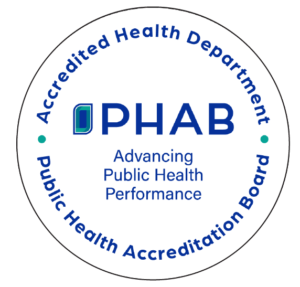The Lake County General Health District (LCGHD) announces that Ohio Department of Health (ODH) has confirmed one positive mosquito pool for West Nile Virus (WNV) in Lake County. A “pool” is a collection of no more than 50 mosquitoes. Although this particular positive pool was collected at a Wickliffe trap site on July 10, 2020, it is likely that positive WNV mosquitoes are present throughout the county.
Identifying a positive pool is confirmation that the WNV threat is present and will likely increase for the rest of the summer. Positive WNV mosquitoes have also been reported in multiple other Ohio counties this season. To date, there have been no human cases of WNV reported in Ohio.
Bert Mechenbier, Environmental Health Supervisor for the Lake County General Health District said ”West Nile Virus is native to Lake County and Ohio since 2001 and will continue to be a long term, public health threat”. Mechenbier added that residents should do their part to control breeding sites. Here are some tips for homeowners to reduce the risk of getting WNV:
- Dispose of tin cans, old tires, buckets, unused plastic swimming pools, plastic covers or other containers that collect and hold water.
- Keep roof gutters unclogged. Clean gutters in the spring and fall.
- Clean and chlorinate swimming pools, outdoor saunas, and hot tubs. Keep them covered when empty.
- Empty and change the water in bird baths, fountains, wading pools, rain barrels, and potted trays at least once a week, if not more often.
- Check for water in children’s toys.
- Fill or drain puddles, ditches, and swampy areas and either remove, drain, or fill tree holes and stumps with mortar.
- Contact the health department with concerns regarding malfunctioning septic systems.
- Eliminate standing water around animal watering troughs.
- Irrigate lawns and gardens carefully to prevent water from standing for several days.
- Avoid being outside from dusk until dawn when mosquitoes are most active. If you cannot avoid those times, use an insect repellent.
- Use an insect repellent containing Picaridin or DEET. Use repellents according to label instructions. Take special care when using insect repellents on children. Wash treated skin and clothing after returning indoors.
- Wear long sleeved shirts, long pants, and socks if you go outside when mosquitoes are most active (from dusk until dawn).
- Make sure window and door screens are “bug tight”. Repair or replace torn screens.
The Lake County General Health District Mosquito Control program is a locally-funded program to protect our residents from mosquito-borne disease. The mosquito control program tracks the mosquito population, monitors disease levels in the mosquitoes, applies larvicides, and conducts nighttime adulticiding. The mosquito population is monitored through the use of specialized traps placed throughout the county and calls from the public. The trapped mosquitoes are counted and sent to ODH for WNV testing. The Mosquito Program employs three full-time crews that inspect areas of standing water for mosquito larva and, if needed, treat the area to kill the larva. The adulticide program consists of spraying areas of the county in the evening when the mosquitoes are active. Information about the spray routes and schedule are available at: https://www.lcghd.org/mosquito-control/ or by calling 440-350-2088.
Please call the LCGHD at (440) 350-2543 with questions concerning mosquito control or WNV. Additional WNV and mosquito information can be found at:
Ohio Department of Health: https://odh.ohio.gov/wps/portal/gov/odh/know-our-programs/zoonotic-disease-program/resources/west-nile-virus
Centers for Disease Control and Prevention: http://www.cdc.gov/ncidod/dvbid/westnile/index.htm

